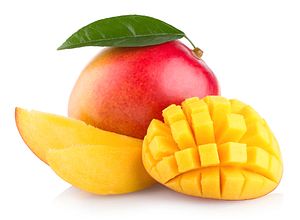The Peruvian embassy in Beijing hosted a mango tasting event last January, and while the city’s mango enthusiast community is as small as you might imagine, this was no minor affair. Indeed, in China, the mango was once a Communist Party symbol.
The political power of this unassuming tropical fruit can be traced back to January 1961, when the Peking Opera first performed “Hai Rui Dismissed from Office,” a play about an official who was known for his moral integrity. The play was written by Wu Han, the former vice mayor of Beijing, and one of the nation’s greatest historians. It was a great success. Rujie Wang, the chair of Chinese at the College of Wooster, writes, “Mao praised the play and urged communist leaders to emulate Hai Rui.”
Then, in May 1966, students at Tsinghua University Middle School and Peking University formed a group criticizing their respective administrative officials, who admired the play, for their bourgeois intellectualism. They called themselves the Red Guard, and Mao not only promoted their work, he wrote them a letter of support. But being a rabid paramilitary group, they soon began to raise eyebrows in Beijing. Two years later, Mao changed his mind again and sent in 30,000 workers to violently subdue them. Once their blood was spilled and the dust had settled, Mao presented the workers with a crate of 40 mangoes by way of thanks.
“What is a ‘mango?’ Nobody knew,” one of the workers later said. “Few had even heard the word, let alone seen one. Knowledgeable people said it was a fruit of extreme rarity, like the Mushrooms of Immortality. It must be very delicious. Its appearance nobody could describe.”
This statement, by one of the factory workers who received Mao’s gift, was included in a 2013 exhibition at the Rietberg Museum in Zurich, which chronicled the near religious hysteria surrounding these mangoes; they were encased in glass, handled like precious gems, and prized above human life. When one them went bad, workers boiled it and treated the broth like holy water.
“The workers surmised that Mao’s gift was an act of selflessness,” reports the BBC News Magazine. They believed he had “sacrificed his longevity for theirs,” when in fact, he simply didn’t like fruit.
Art historian Alfreda Murck, who supplied Rietberg Museum with the antiques for its exhibition, said, “No one in northern China at that point knew what mangoes were. So the workers stayed up all night looking at them, smelling them, caressing them, wondering what this magical fruit was.”
The mango craze soon gave birth to mango-brand cigarettes, MangGuo, and enormous mango floats were prominently featured in the 1968 National Day parade. The Chinese passion for mangoes reached fanatical proportions when a dentist, one Dr. Han in Fulin, saw a mango for the first time and remarked that he didn’t think it looked that amazing.
“He was arrested as a counterrevolutionary,” said Murck. “He was soon tried and, to the dismay of the village, found guilty, paraded through the streets on the back of a truck as an example to the masses, taken to the edge of town, and executed with one shot to the head.”
Mangoes today have lost most, if not all, of their Maoist symbolism, but they are becoming increasingly popular, and more costly. Also, earlier this week, a man in Hainan was found guilty of extorting a mango farmer. As mango prices continue to rise, more of this is to be expected.
And as market forces exert more pressure on mango farmers, the fruit’s future costs may be more than monetary. Mengxiang Chun of the Hainan Mango Association explains: “In recent years, consumers prefer bigger mango sizes. Growers are trying to meet demand by trying to increase the size of their fruit. Due to the lack of scientific guidance, this could lead to wrong dosages or faulty application of fertilizers and other auxiliary products.”
Quite a lot of trouble for such a small fruit.
































